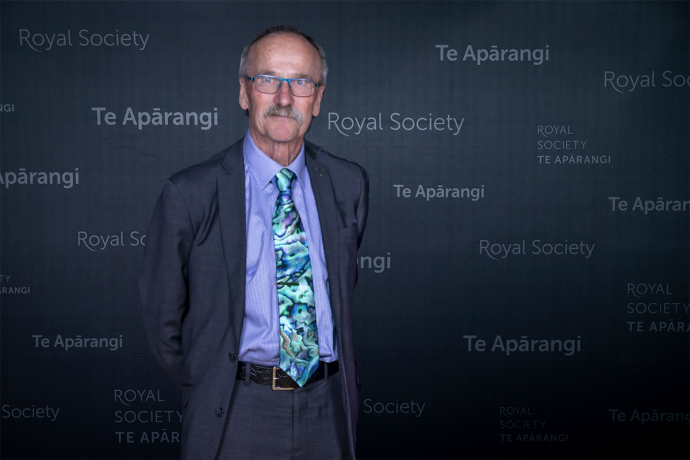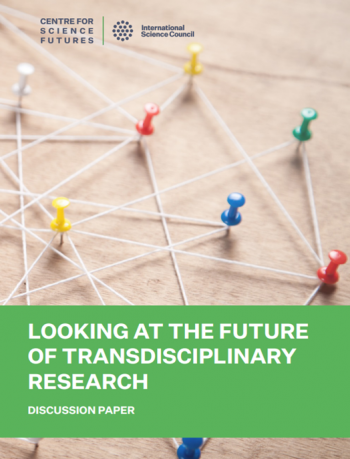Message from Society President – Dr Brent Clothier

Dr Brent Clothier shares his foreword as President of Royal Society Te Apārangi.
Kia ora whānau,
As we approach the solstice and Matariki beckons, in looking back over the last three months, I reflect on a range of activities by Te Apārangi.
On 18-19 April at Te Papa, we hosted the second Early Career Researchers’ (ECR) Forum event 'He Pito Mata' for the early career researcher community of Aotearoa New Zealand. Again it was over-subscribed, and we ended up with nearly 400 ECRs in attendance. Minister Ayesha Verrall opened the event. From this opening, right through until the end, a buzz of excitement and enthusiasm pervaded. Because of the large numbers, and broad diversity of the ECRs, there were parallel sessions on a wide range of topics, from Te Ara Paerangi, through policy and communication, to training sessions on being ‘media savvy’. The ECR Forum committee and kaimahi of Te Apārangi did a great job in organising and running this event. The next one is eagerly awaited by all.
At the other end of the career spectrum, we hosted the New Fellows’ Forum at our whare on 27 April. The depth and diversity of our New Fellows and four Honorary Fellows is impressive. You can view the booklet of Ngā Ahurei Hou a Te Apārangi from our website. Plus you can watch the presentations by our new Fellows through YouTube through links on our website.
On behalf of the Government, Royal Society Te Apārangi hosted the 2022 Prime Minister’s Science Prizes in Wellington on 1 May. The top prize went to the National Institute for Stroke and Applied Neurosciences at Auckland University of Technology, led by Valery Feigin FRSNZ. It was also especially pleasing to see the Te Puiaki Whakapā Pūtaiao Science Communication Prize awarded to Dr Dianne Sika-Paotonu. She was a leading voice during the Covid-19 pandemic explaining the technical aspects of immunology, vaccines, the SARS-CoV-2 virus and infectious diseases. Dianne served on the Council of Royal Society Te Apārangi between 2019 and 2022. Congratulations, Dianne.
The morning after the Science Prizes, Paul Atkins and I left for Europe to attend the mid-term meeting of members of the International Science Council (ISC) in Paris. To maximise the value of our trip, Paul and I first stopped off in the United Kingdom to link up with British academies. In London, we met with the Chief Executives of the Royal Society of London, the British Academy, the Royal Academy of Engineering, and the Academy of Social Sciences. In Edinburgh, we met with the President (Sir John Ball) and Chief Executive (Prof. Sarah Skerratt) of the Royal Society of Edinburgh, along with the Senior Leadership Team of the RSE. We also met with Marie Montondo, the Senior Officer of the Young Academy of Scotland. It was enlightening (mutually) to discuss strategic and management challenges and opportunities with our British ‘cousins’.
At the three-day meeting in Paris, the ISC launched its Centre for Science Futures. There was a session on Advancing Transdisciplinary Science, and Te Ahukaramū Charles Royal spoke about “Indigenous Knowledge and Transdisciplinary Science”. At the ISC meeting the Centre for Science Futures released a Discussion Paper on Transdisciplinary Research.

The report begins by noting that “… in the following we use the term ‘science’ in a broader sense than the usual English meaning. Our interpretation is closer to the German term ‘Wissenschaft’, which includes scholarship from the social sciences, humanities, and jurisprudence”.
The ISC, which was formed in 2018 by the union of the International Science Council (ICSU) and the International Council for Social Sciences (ICSS) is akin to us at Royal Society Te Apārangi. Indeed, the ISC’s Centre for Science Futures is ‘sponsored’ by Sciences Po, France’s leading university of social sciences and humanities.
The paper is a great read. They conclude that “… we believe it is time for reflection, for science and for societies in general. As scientists, we need to examine our practice, get to the roots of our activity (research) and the institutions through which science operates (the science system). We must ask how science and science systems can improve or evolve to become a trusted partner in the global societal and environmental changes that must be set in motion”.
And that is what we, as Royal Society Te Apārangi, intend to set in train through our developing strategy, and the tactical actions that will then flow from our agreed pathway forward. There will be more on that in our next Fellows’ Newsletter.
Finally, I wish to express great thanks for the insights and thoughtful work of Professors Charlotte Macdonald, Linda Waimarie Nikora, and Angus Macfarlane as their terms conclude on the Council (Charlotte and Linda Waimarie), and the Academy Executive Committee (Angus). Tēnā koe.
Ngā mihi
Dr Brent Clothier FRSNZ
President, Royal Society Te Apārangi
